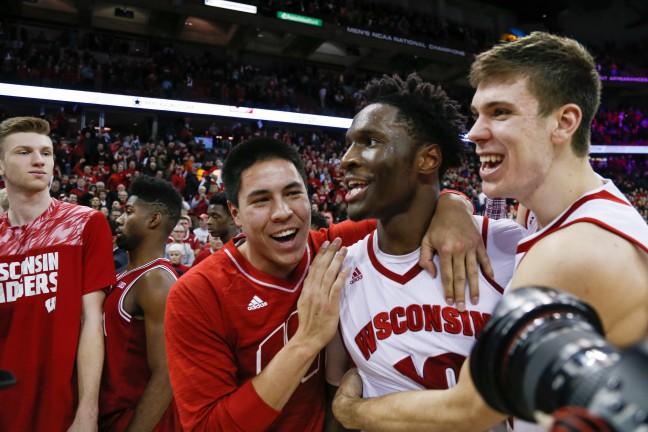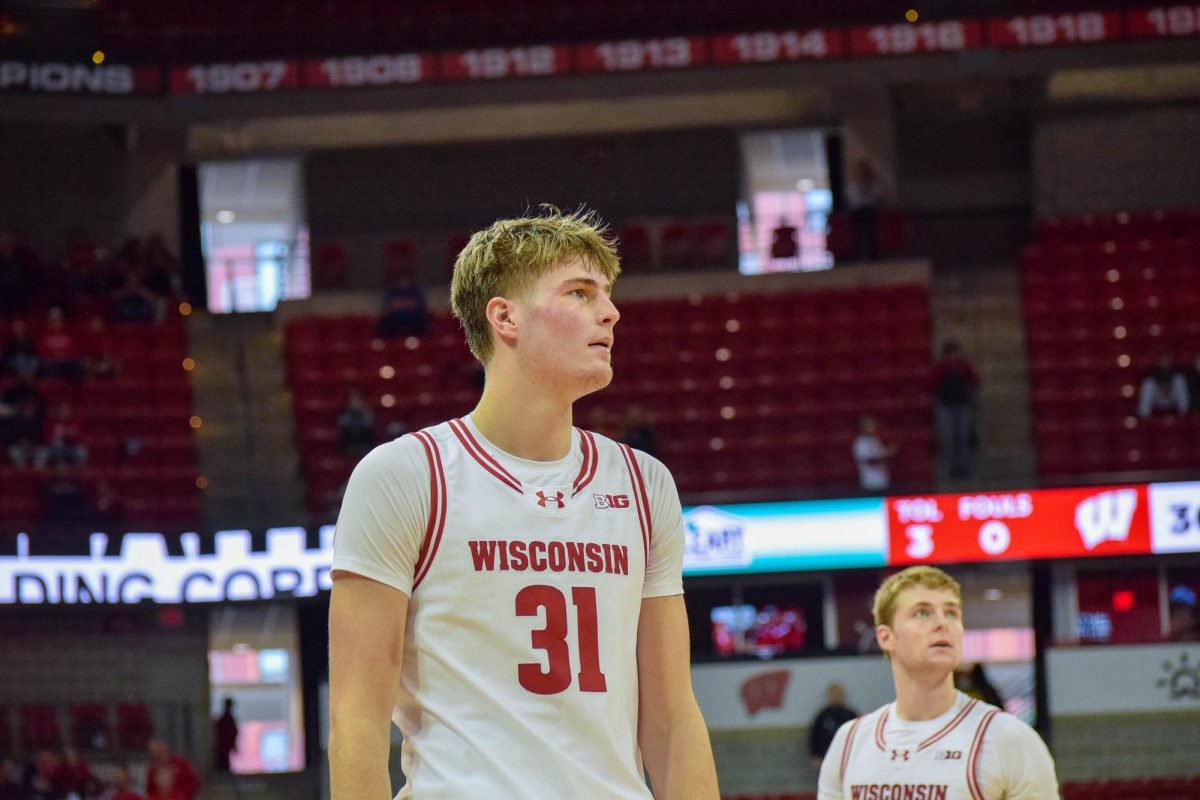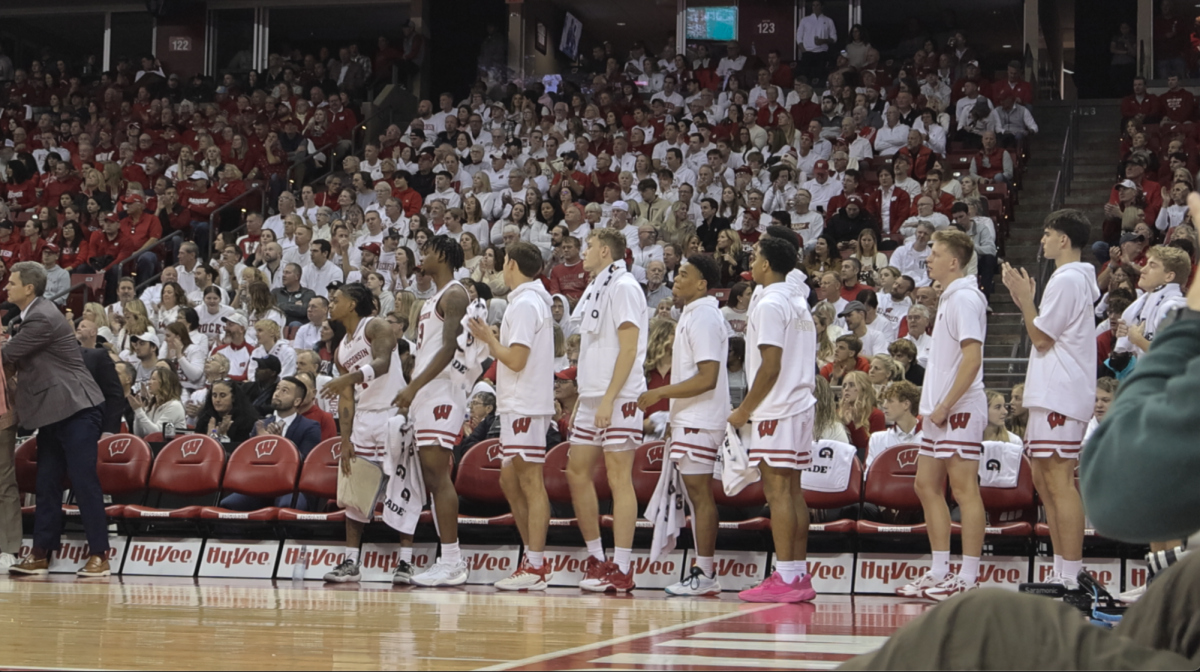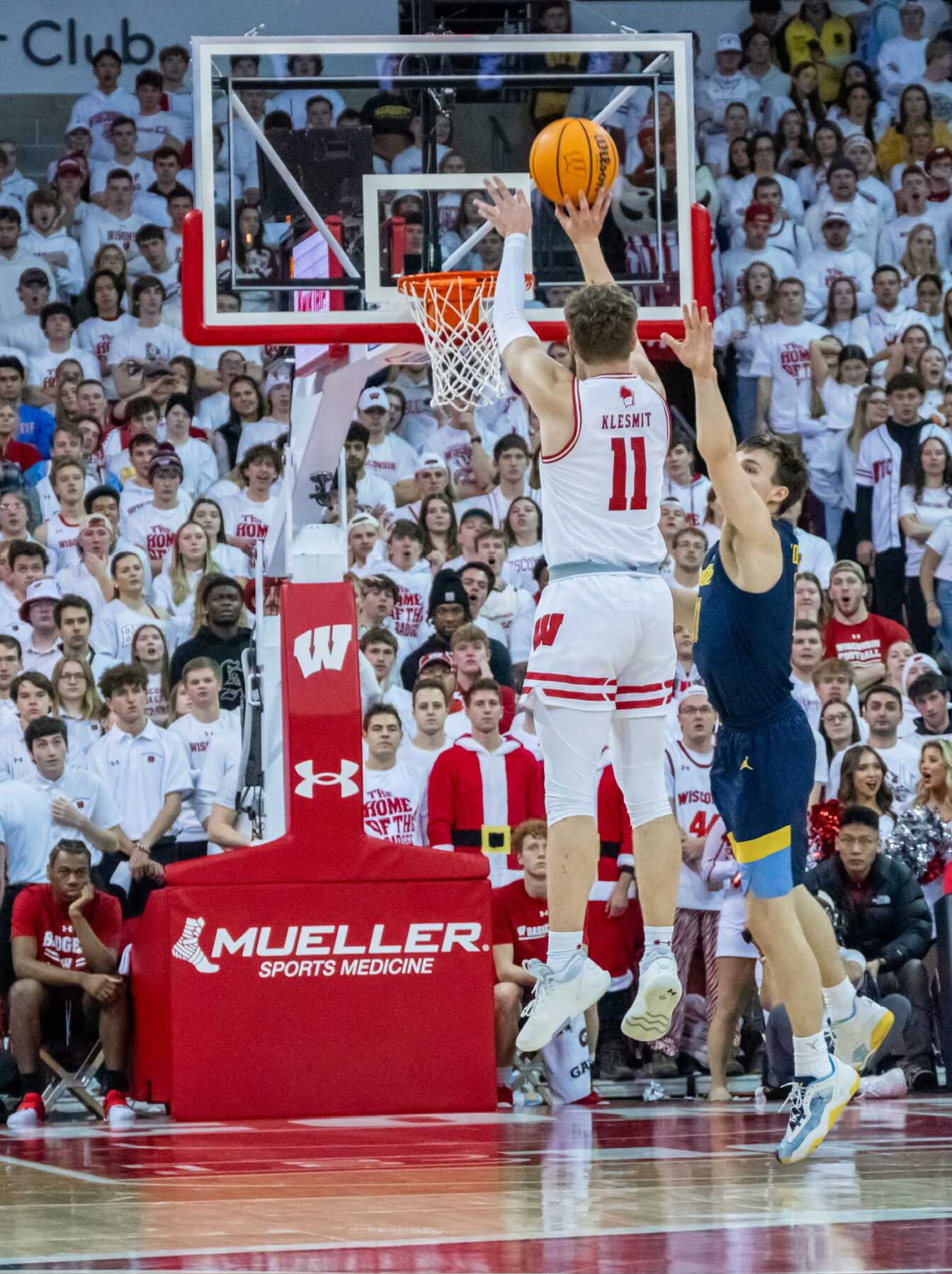For collegiate basketball players, the allure of the NBA is tantalizing. Reaching that level is what many have been working toward for their entire lives and with recent NCAA rule changes, that dream is even closer.
In prior years, declaring for the NBA draft was a riskier decision since players had to declare before the National Letter of Intent period opened. This year, it will begin on April 13 — almost a full month before the NBA Draft Combine, which is set to begin on May 11.
Thanks to the ratification of recent proposals, NCAA players now have the ability to rescind their name from the list for up to 10 days after the conclusion of the draft combine on May 15. This allows players to receive feedback from professional scouts and organization members on their draft stock, while still maintaining eligibility to play NCAA-sanctioned games as long as they rescind their name from consideration within the 10-day period.
It’s a no-lose situation for talented players, especially for Wisconsin men’s basketball’s Nigel Hayes.
Greg Gard on Nigel Hayes and the NBA: We're going to submit his name to the advisory committee. Then from there he'll decide about entry.
— Wisconsin Basketball (@BadgerMBB) April 5, 2016
Hayes’ junior season wasn’t as stellar as many had speculated, but by no means was his play bad either. Partaking in the combine and receiving feedback on his draft stock is the smartest decision for a player of his caliber since there is professional interest.
There is a good chance Hayes returns to Wisconsin for his senior season, but if he does decide to leave, there is a lot the Badgers will be missing.
The scoring has to come from someone
Hayes was called upon to do a bit more than he could handle on his own this season, which contributed to his decreased shooting percentage compared to his first two seasons.
While the junior scored a career and team-high 15.7 points per game this season, his shooting percentage took a massive hit and dropped from 49.7 percent last season to 36.8 percent this season. Hayes often drew double-teams on offense but was still called upon at-large during games.
Wisconsin averaged 67.8 points per game, and Hayes, who played every game, contributed 23 percent of that average with his 15.7 points. Compared to the top scorers on every team that made the Elite Eight of the 2016 NCAA Tournament, Hayes scored the fourth-highest percentage of his team’s points, which places him in the middle of that pack.


Successful teams need a scorer, and Hayes was often called on for the job due to the team’s poor shooting performance at times this season — the Badgers shot under 43 percent, 16 times this season.
Hayes was the Badgers’ leading scorer 14 times this season, five more times than both Koenig and Happ, but most interesting is the time periods during which he strung together consecutive games as leading scorer. During head coach Greg Gard’s first 11 games, he was leading scorer nine times and tasked with jumpstarting the team’s offense.
The amount of times Hayes was fed the ball forced the junior to attempt a team-high 438 field goals this season — 53 more than second-place Bronson Koenig and 135 more than third-place Ethan Happ. Defenders then knew where the shots would be coming from and prepared to divert special attention on stopping Hayes.
Hayes’ shooting this season suffered because of this, but when shots weren’t falling, he showcased just how special of a player he is by driving to the basket and drawing fouls. During Hayes’ 15-highest free throw scoring games, he shot 40 percent or less nine different times.
Hayes attempted 244 free throws during 2015-16, which was the 14th-highest total in NCAA Division I play — off the dribble, he’s tough to defend.
Hayes also leads the team in assists (104), but is prone to turnovers (79), which he leads the team in as well. But these two statistics point further to how much Hayes had the ball in his hands during the season.
A diverse skillset
Despite his size, Hayes is nimble and his perimeter defense helped the Badgers’ stingy defense this season.
Wisconsin’s opponents averaged just 63.8 points per game this season, the 17th-lowest average in NCAA Division I play. Hayes was no small part of that, with 39 steals and 14 blocks.
But Hayes’ defensive contributions go beyond the box score, and he was also commonly tasked with defending a team’s best player this season, which included having to guard the likes of both AP National Player of the Year in Michigan State’s Denzel Washington and the Naismith College Player of the Year in Oklahoma’s Buddy Hield.












